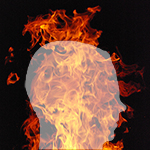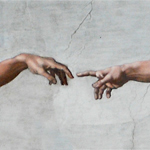New to the Phantom Self? Read what this site is about, scan the Table of Contents, or begin with the Introduction. Contact the author – or comment on any post.

Just when I thought I had my subject figured out, I came across another researcher whose work has shaken my perspective on several points I thought were settled. Shaken, but not destroyed; rather, Michael Levin’s insights cast light into some of the murkier corners, and offer support where support was needed. Since I am presently twelve chapters in to a book on personal identity and the human experience of self, it is unsettling to realize that I will need to go back and revise biggish parts of it—but it is reassuring that these changes point in the direction of a stronger theoretical foundation for conclusions I had already reached.
Levin is a thinker who makes my head explode. He offers a fundamental paradigm shift in thinking about the units of life. The defining principle of a living entity is its orientation to the homeostatic goal of maintaining its own living conditions: self-regulating its temperature, its oxygenation, its nutrition, its safety, etc., within the range optimal for growth and reproduction. Significant deviations from these homeostatic norms are stressors; the entity seeks to reduce stress.
Continue reading “Cooperation All the Way Down: Michael Levin on the Goals of Living Things”



